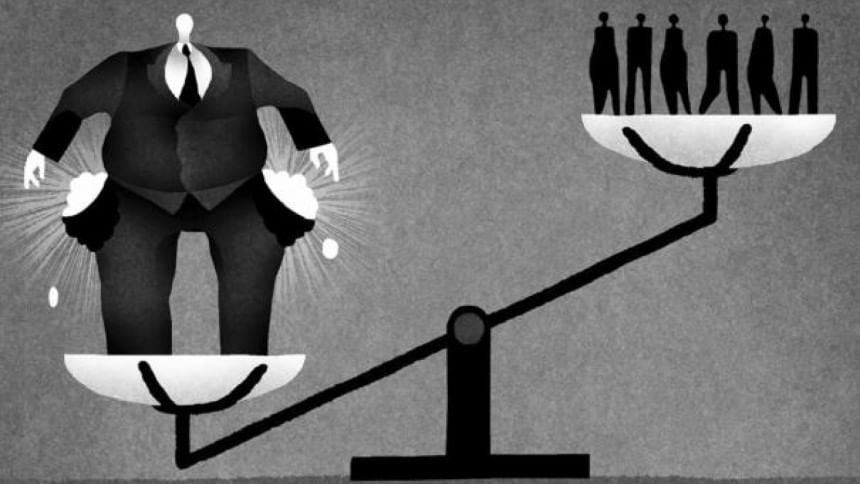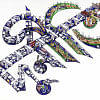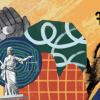Inequality gap on the rise

A recent study by a think-tank has exposed the underbelly of the development scenario in Bangladesh in which rising GDP growth and rising income and wealth inequalities walk hand in hand. The study, conducted by the Centre for Policy Dialogue, showed that in 2016, the top five percent of Bangladesh's income-earners earned 121 times more than the bottom five percent, in a jump from 31.5 times in 2010. Which means, during the interim period, they have almost quadrupled their share of the total national income.
The situation is no less frustrating when it comes to wealth inequality between the top five percent and the bottom five, which has more than doubled during the same period. The findings are a clear indication that while the country may be performing better in certain development indicators, income and asset inequalities continue to exist and may emerge as a big threat to the overall economy if adequate policy attention is not given to the poor, vulnerable groups and the conditions that perpetuate inequalities and marginalisation.
True, inequality is a global problem, and Bangladesh is not immune to the effects from the global free market economy. But it needs to fight persistently since the solution is achievable. What we need is a strong will to reduce inequalities. We should also identify the many vulnerable groups within the society, and adopt and implement needs-specific policies that adequately address their conditions for an inclusive transformation. Equally important is a large-scale social movement, of which the political leadership will be an integral part, so that no one is left behind in the journey to growth.

 For all latest news, follow The Daily Star's Google News channel.
For all latest news, follow The Daily Star's Google News channel. 








Comments